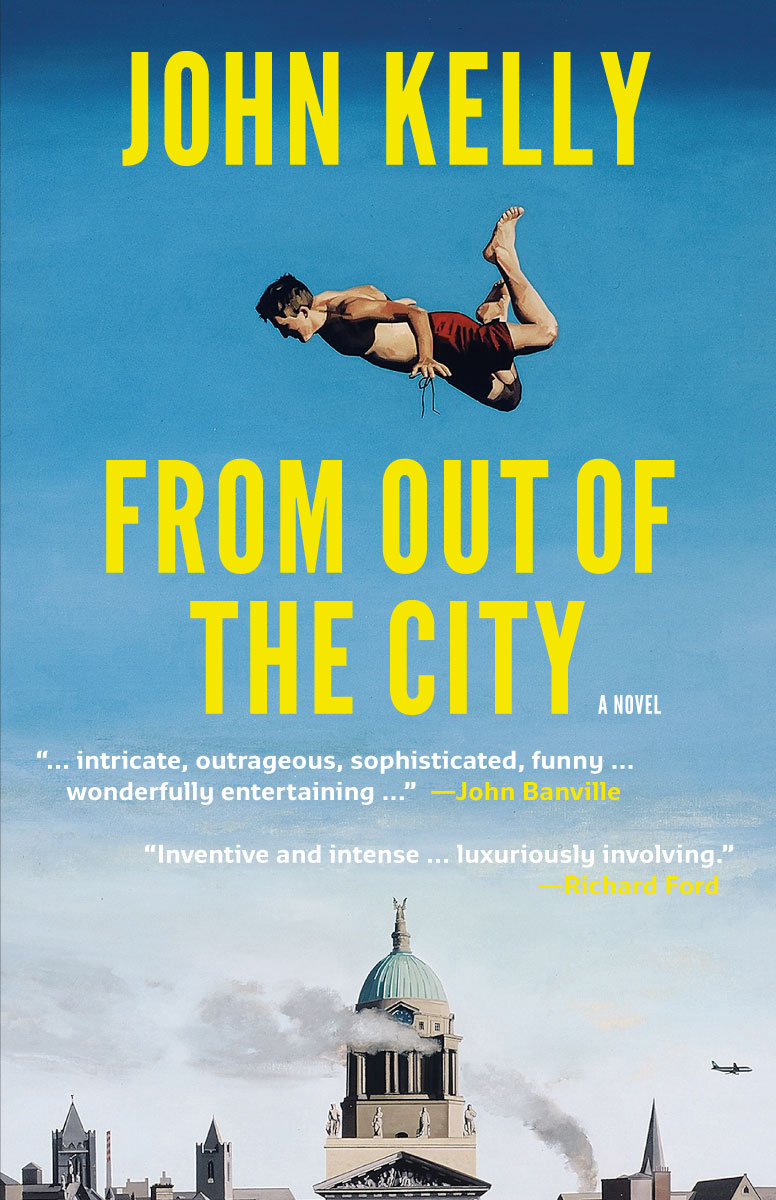John Kelly is an Irish radio DJ, the presenter of the Irish equivalent of ‘The Review Show’ and, also, a writer of some achievement. His previous novels have defined the life (and preserved the schoolboy slang) of Enniskillen teenagers while his memoir, Cool About the Ankles, is as good a book about Northern Ireland as has been published.
From Out of the City has wider ambitions, broader influences and driven by an outraged wit it has a broader appeal. Our narrator, Monk, is in his eighties, living just outside Dublin in the mid-twenty-first century occupying his time by keeping surveillance on his neighbours and, even, monitoring the security services that have made Dublin their base (and home to one of their prisons). He reflects on the consequences of Ireland’s economic woes of the early part of the century, “a place so deep in debt that all sovereignty has been gone for years.” Ireland is now “a place neither utopian nor dystopian”, Dublin a “rundown wreck of a capital … now little more than a mix of Camden Market and old Philadelphia” and run largely by the American security services.
Monk’s surveillance focuses on his neighbour, Anton Schroeder, a failed novelist and academic who, inadvertently, stumbles into a loose association with the death of the American President who is on a State visit to Dublin. That is the plot, though it has to be remembered that plot is also a synonym for conspiracy. Unravelling one conspiracy is the centre of the novel but set in the decayed future that William Gibson has made his own, and revolving around characters watching (and informing on) each other in a society where “no conspiracy too small”, amid all manner of personal and cultural corruption, From Out of the City is a startlingly energetic and vivid novel.
Recalling the work of Flann O’Brien, a considerable compliment (there are even jokes about comic policemen here as funny as any by O’Brien), Kelly’s language is a torrent of comic inventiveness that makes it a joy to read. The language plays with an Ireland that has been cut off from its past, a society that no longer knows the history behind its street names though a psychogeographical continuity means that Temple Bar retains its atmosphere of “threat and decay”. Economic failure has led to cultural loss, the constant surveillance of its people maintains the dislocation of a people who no longer have “even the slightest clue of the ghosts which surround them as they sleep.” What does the city lose, John Kelly asks, when its inhabitants no longer know the history behind its street names: “Dawson Street, named for Joshua Dawson, Collector of Dublin, Secretary of Ireland and Member of Parliament for County Wicklow”?


